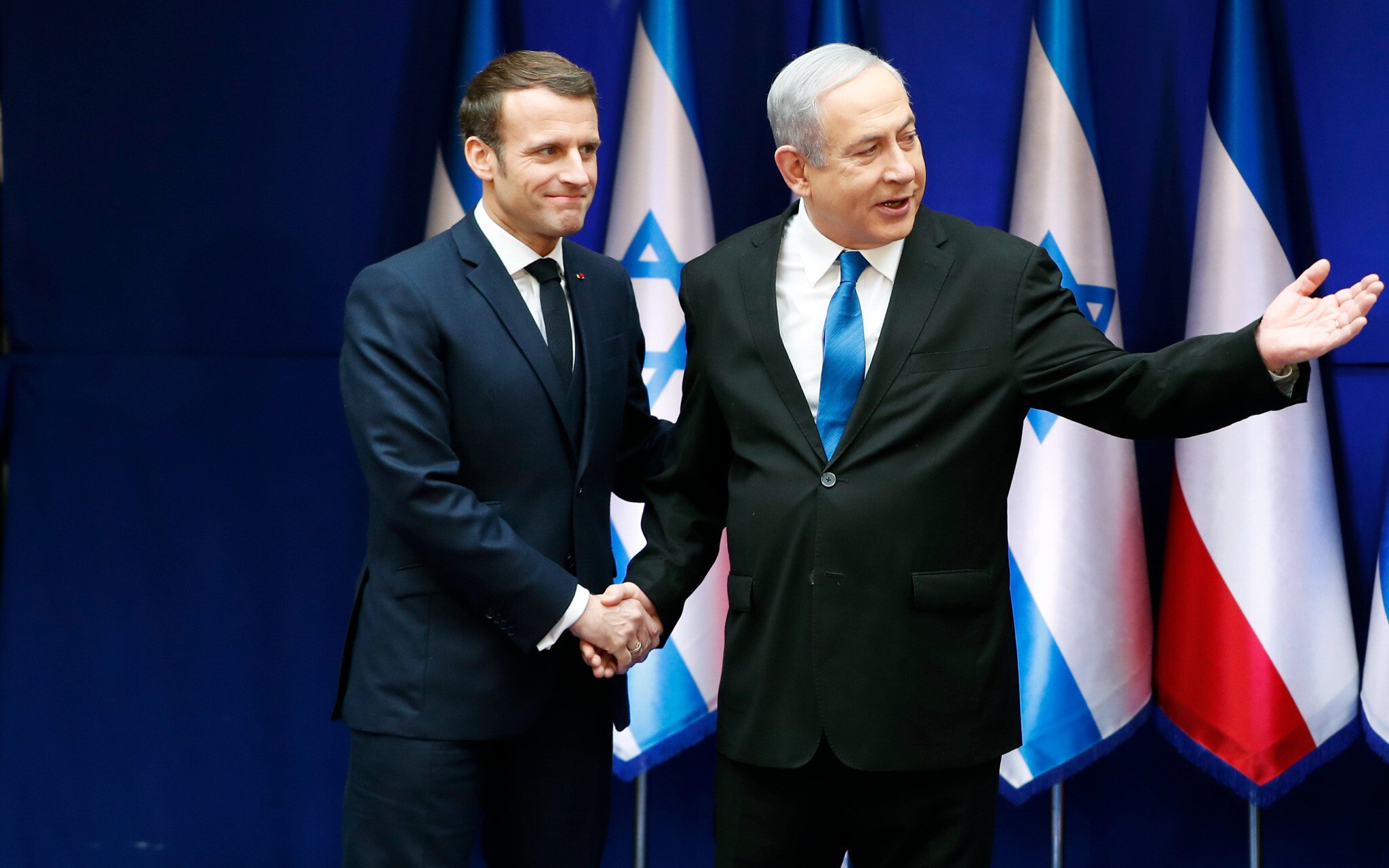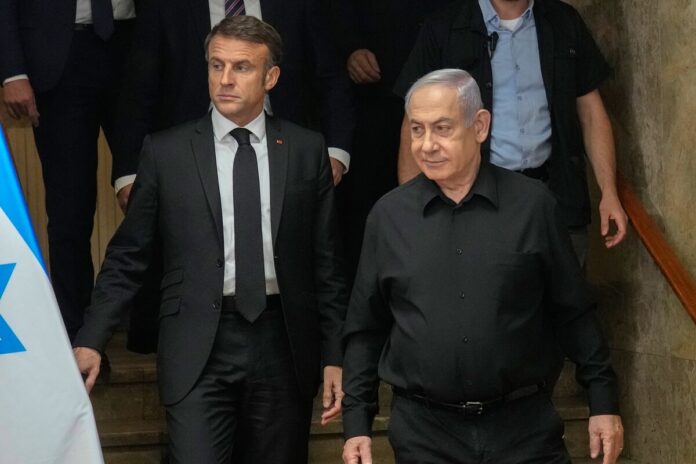Diplomatic Rift Deepens Between Israel and France
Israeli Prime Minister Benjamin Netanyahu has refused to host French President Emmanuel Macron in Israel, demanding that France first reverse its plan to recognize Palestinian statehood at the upcoming United Nations General Assembly.
According to Israeli broadcaster Kan, Netanyahu issued a blunt condition to Macron: “Withdraw your decision to recognize a Palestinian state – then you can come.” The rejection has turned what could have been a discreet diplomatic disagreement into a very public standoff between Jerusalem and Paris.
Foreign Minister’s Harsh Rebuke

Israeli Foreign Minister Gideon Sa’ar escalated tensions further by openly attacking Macron on social media platform X. Sa’ar accused the French president of being preoccupied with granting visas to Palestinian Authority (PA) officials while ignoring what he called “incitement in Palestinian schools” and the “continuing practice of paying salaries to terrorists and their families.”
Sa’ar’s remarks underscore Israel’s frustration with Europe’s growing support for Palestinian statehood. Israeli officials argue that recognition, without negotiations, emboldens hardline factions and undermines efforts to secure peace through dialogue.
France Moves Ahead With Recognition
President Macron has remained firm on his pledge, first announced in July, that France will officially recognize Palestine as a state during the UN gathering. France, in partnership with Saudi Arabia, is co-hosting a high-level conference on September 22 aimed at breathing new life into the long-stalled two-state solution.
French Foreign Minister Jean-Noël Barrot defended Paris’s decision, stating that France had negotiated what he called “unprecedented commitments” from the Palestinian Authority. These, he claimed, include halting prisoner stipends and reforming textbooks to curb anti-Israel incitement.
However, Israeli leaders have rejected these assurances. Sa’ar dismissed Barrot’s claims as misleading, asserting that the PA has merely repackaged its stipend program without ending payments to convicted terrorists and their families. “The same money continues to flow to the same accounts,” Sa’ar argued.
U.S. Tightens Pressure on Palestinians
The crisis has been further complicated by Washington’s intervention. The U.S. government, under the Trump administration, has imposed sweeping visa restrictions on Palestinian leaders, including President Mahmoud Abbas and about 80 senior officials.
Secretary of State Marco Rubio justified the move by insisting that Palestinian leaders must first repudiate terrorism—specifically referencing the October 7 attacks—before being treated as credible partners in peace negotiations.
The restrictions go beyond attendance at the UN assembly. Reports suggest that nearly all visitor visas for Palestinian passport holders have been suspended, disrupting travel for medical treatment, academic study, and business. Critics have described the measures as collective punishment, while U.S. officials defend them as necessary pressure to push the PA toward reform.
Growing International Momentum for Recognition
Despite U.S. resistance and Israeli objections, momentum toward Palestinian recognition is building across the globe. Nearly 150 countries already recognize Palestine, and several Western nations—including France, the United Kingdom, Canada, and Australia—have signaled plans to join them during the September assembly.
Belgium announced this week that it, too, would vote in favor of recognition. European governments argue that supporting Palestinian statehood is essential to preserving the credibility of the two-state solution and preventing the conflict from sliding further into violence and stalemate.
Israeli Leaders Warn of “Dangerous Consequences”
Israel, however, views this diplomatic wave as destabilizing. Officials in Jerusalem warn that unilateral recognition risks rewarding violence while discouraging Palestinians from engaging in direct peace talks.
Sa’ar accused Macron of undermining regional security, claiming that such actions “drag the Middle East and the international system toward unilateral moves with dangerous consequences.” Netanyahu’s refusal to welcome Macron reflects Israel’s determination to push back against what it sees as a coordinated campaign to isolate the Jewish state diplomatically.
What Lies Ahead
The dispute highlights the widening gap between Israel and key Western allies over how to resolve the Israeli-Palestinian conflict. While the U.S. has adopted a punitive stance toward Palestinian leaders, European nations appear increasingly willing to bypass Washington and move forward with recognition.
As the UN General Assembly approaches, the diplomatic showdown is set to intensify. Macron is pressing ahead with his recognition plan and high-level conference, while Netanyahu is doubling down on his opposition.
The clash could mark a turning point in international efforts to revive peace talks, testing whether recognition without negotiations can generate momentum—or whether it will further entrench divisions on the ground.
Sources: JNS


